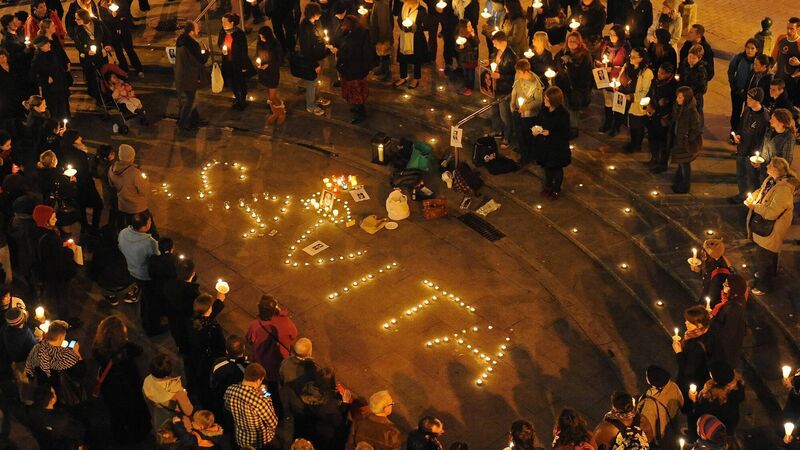Liz Dunphy: Savita Halappanavar should not have had to die for reproductive rights to change

People gathered at Emmet Place, Cork, during a candlelit vigil organised by Cork Womens Right To Choose group in memory of Savita Halappanavar in 2012. Picture: Denis Minihane.
Wax dripped like tears from flickering candles which burned brightly around a photo of Savita Halappanavar at a vigil for her in Cork in the days after her death.
The people cried too. Women and men, teenagers, parents holding their young children in their arms and by the hand, knowing that Savita could have been them, their daughter, their mother, their sister, their friend.
















